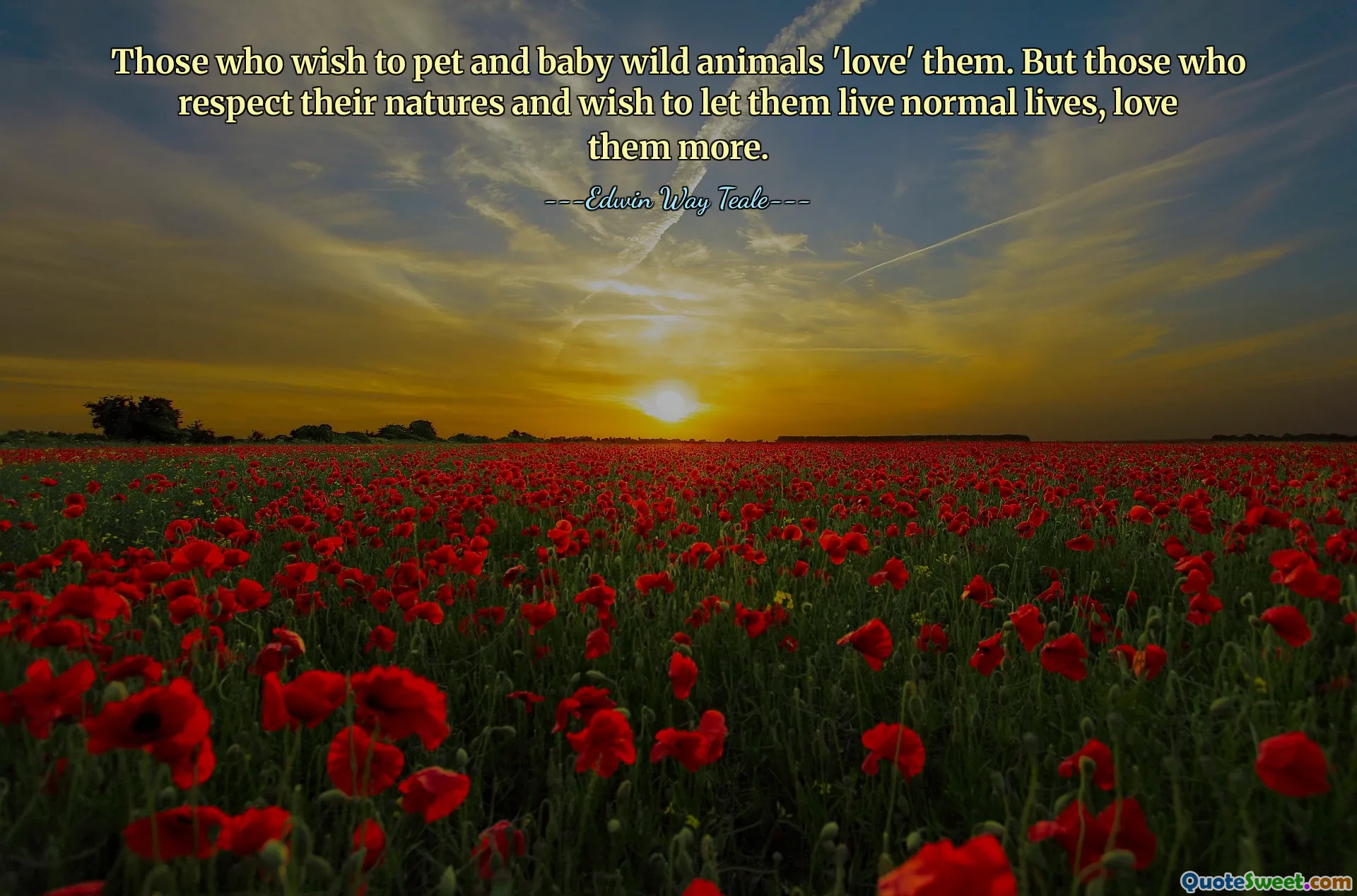
Those who wish to pet and baby wild animals 'love' them. But those who respect their natures and wish to let them live normal lives, love them more.
The quote emphasizes a profound understanding of the difference between superficial affection and genuine respect for wild animals. Often, humans project their desires onto animals, viewing them as entities to fulfill their needs or whims—like petting or cuddling. While this might seem harmless or even endearing on the surface, it can overlook the intrinsic nature of these creatures. True love for wild animals entails recognizing their fundamental instincts, behaviors, and rights to exist as they are naturally meant to. When humans allow wild animals to remain in their natural environment and maintain their behaviors, they are demonstrating a deeper form of respect and care. This perspective encourages a shift from a sentimentality rooted in human desires towards a compassionate understanding of animals’ autonomy and ecological roles. It also highlights the importance of conservation and ethical considerations, reminding us that authentic love involves not only affection but also responsibility and acknowledgment of an animal’s innate identity. Respecting their existence as wild creatures, rather than trying to tame or domesticate them, fosters biodiversity and the integrity of ecosystems. Ultimately, the message urges us to reconsider how we approach our relationship with wildlife, emphasizing mindfulness, empathy, and a commitment to their well-being in a manner that honors their nature rather than personal convenience or entertainment. Loving wild animals in this way involves humility, education, and a recognition of the profound beauty and importance of preserving their freedom.











